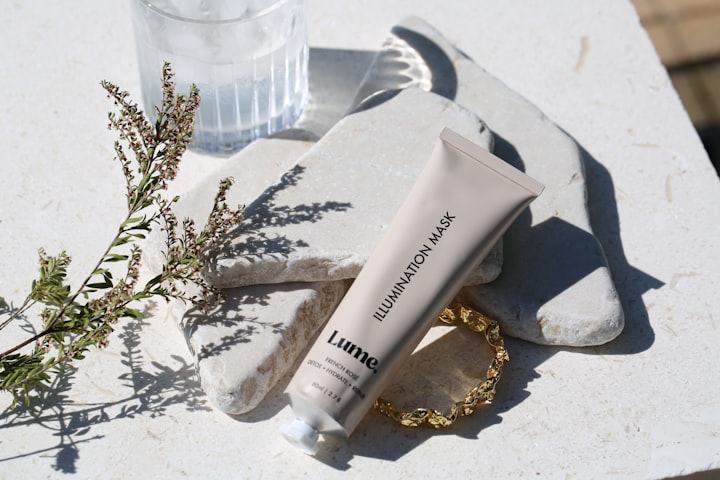
FACE WASHING 101:
How you wash your face can make a difference in your appearance. Follow these tips from dermatologists to help you keep your face looking healthy.
- Use a gentle, non-abrasive cleanser that does not contain alcohol.
- Wet your face with lukewarm water and use your fingertips to apply cleanser. Using a washcloth, mesh sponge, or anything other than your fingertips can irritate your skin.
- Resist the temptation to scrub your skin because scrubbing irritates the skin.
- Rinse with lukewarm water and pat dry with a soft towel.
- Apply moisturizer if your skin is dry or itchy. Be gentle when applying any cream around your eyes so you do not pull too hard on this delicate skin.
Limit washing to twice a day and after sweating. Wash your face once in the morning and once at night, as well as after sweating heavily. Perspiration, especially when wearing a hat or helmet, irritates the skin. Wash your skin as soon as possible after sweating.
SHOULD I APPLY MY SKIN CARE PRODUCTS IN A CERTAIN ORDER?
The sequence in which you apply your skin care products affects how well the products work. Dermatologists recommend that you apply products in the following order.
Follow these steps:
- Wash your face. Use a gentle cleanser and gently pat dry.
- Apply medication or treatment. If you are using medicine or other treatment on your skin, you should apply this right after cleansing. When applying any cream around your eyes, use your ring finger, because it is the weakest finger and will not pull too hard on this delicate skin.
- Apply moisturizer and/or sunscreen.
- Apply makeup, if desired.
- Infographic explaining the correct order to apply skin care products.
Using too many products may irritate the skin, especially if you are using more than one anti-aging product. This often makes the signs of aging more noticeable. See a board-certified dermatologist if you have questions or concerns about caring for your skin.
4 SKIN CARE TIPS FOR YOUR HANDS
Try these hands-down best tips to care for your digits’ delicate skin
You use them all day, every day, but are you giving your hands the TLC they need? Much like your face, your hands are exposed to the elements more than the other parts of your body. Plus, they’re always in motion: typing on a computer keyboard, taking care of your children, cooking dinner, cleaning up the latest mess, and the list goes on. In 2020, we put our hands through even more, with more frequent washing and sanitizing to prevent the spread of COVID-19.
The result of not properly pampering your hands? "If you want to know someone’s age, don’t look at their face, look at their hands," says board-certified dermatologist Diane S. Berson, MD, FAAD, an associate professor of dermatology at Weill Cornell Medicine-New York Presbyterian Hospital. Once the barrier is compromised—from frequent wetting and not moisturizing enough—Dr. Berson says irritants, allergens, and even infectious particles are more likely to penetrate our skin. This could cause rashes, itchy patches, and other issues. "Severely dry skin can develop cracks—some of which can become deep—and subsequent infections," she adds.
To give your hands the care they crave, deserve, and need, follow these four dermatologist-recommended tips:
- Carry hand cream with your sanitizer
By now, you’re used to the routine of spritzing hand sanitizer every time you touch a surface in public and washing your hands the moment you return home. Though it’s smart to follow the Centers for Disease Control and Prevention recommendations, it’s also putting mega stress on your hands. In fact, Dr. Berson says the same wintertime symptoms, like drying or irritation, can pop up with frequent cleansing and scrubbing.
“Antimicrobial cleansers can often be more drying, and sanitizing gels containing alcohol can strip the skin of our bodies’ naturally moisturizing oils,” she explains. They can also potentially exacerbate chapping, irritation, and eczema. Every time you use a sanitizer or wash, apply a moisturizer, too. This will help to repair the damage—and keep your skin smooth. Using moisturizer after handwashing does not negate your handwashing efforts. Even if your hands are dry from frequent washing, continue washing them to help prevent the spread of COVID-19.
2.Protect your hands from changing temperatures
As the temperature drops, the heat indoors goes up. This makes the air within your home and out in the world drier than in other seasons, causing your hands to become chapped, red, itchy, and in some cases, scaly. This can be uncomfortable for everyone, but particularly for those who suffer from painful skin conditions, like eczema. To protect your hands, Dr. Berson recommends investing in a fragrance-free, dye-free hand cream or ointment. Look for products that contain lipids (like ceramides), humectants (like glycerin and hyaluronic acid), and occlusives (like mineral oil or petrolatum). When these superstar ingredients work together, they ensure your skin is moisturized and hydrated, even on the year’s coldest day. Use products that you squeeze out of a tube, as these are more effective than thinner lotions you pump out of a bottle.
“Moisturizing creams should be used more frequently [in cold weather], especially after wetting the hands,” Dr. Berson adds. Apply your moisturizer when your skin is still damp after bathing or handwashing, or whenever it feels dry.
3.Apply sunscreen
It seems obvious, but we forget that the sun’s ultraviolet radiation doesn’t discriminate where it lands, and any exposed skin is at risk. When you don’t protect your hands from these harmful rays, Dr. Berson says, you can develop discolored spots (called lentigines or age spots), roughness, wrinkling, and dryness. Hands are also prone to developing precancerous spots called actinic keratoses (AKs), which can turn into squamous cell carcinoma, the second-most-common type of skin cancer.
To ward off these early signs of aging and protect your health, she recommends applying daily sunscreen year-round to all skin not covered by clothing—including your hands— when you are going to be outside. "There are brands that have sunscreens targeted for the body rather than face, often a lotion that spreads easily. But the most important thing is for your sunscreen to be broad-spectrum, water-resistant, have an SPF of at least 30, and spread well for even application prior to going out in the sun."
4.Give your hands the star treatment at night
When settling into an evening of self-care that includes comfy pants and a cozy drink, add a hand-care step to your routine. Dr. Berson recommends soaking your hands in warm water or milk before applying a cream or ointment to seal in moisture. Then, put on cotton gloves. Turn on your humidifier before tucking yourself in, and let the cream do its magic overnight. In the morning, you’ll wake with silky, healthy hands ready to tackle whatever the day—or 2021—has in store.
About the Creator
Vamshi
a human with more dreams and energy






Comments
There are no comments for this story
Be the first to respond and start the conversation.